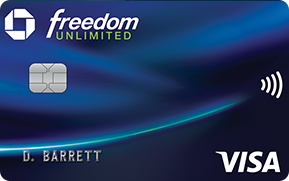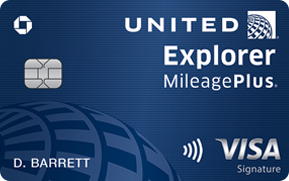- Mark as New
- Bookmark
- Subscribe
- Mute
- Subscribe to RSS Feed
- Permalink
- Report Inappropriate Content
Re: Anyone else think the algorithm is wrong???
@tricie17 wrote:I for one believes that the system is flawed. The guidance given to the Bureaus I doubt is read correctly. I mean after all if I get a credit card, my longevity goes down but if I don't get a credit card, I do not have enough credit-who made this mess up. The Bureaus are so busy creating their own portfolio that your credit gets information that do not even belong to you or it is wrong altogether. FICO only gets to accept the flawed information from each of the three Bureaus which does not make things better. CFPB is so overloaded with crap messes that is placed incorrectly on reports and the investigation starts with (sent back to) the company reporting the wrong information in the first place.
1. The credit bureaus are repositories of data sent to them by your creditors. The creditors are responsible for data that is sent.
2. You are responsible for reviewing your files to verify information in the files is correct.
3. The Fico algorithms simply convert data inputs to a credit risk score. They undoubtedly have some built in error checking for erroneous data but can't check for accuracy.
3. Work history and addresses contained in your file are not considerations in Fico scoring algorithms. That's good because this information usually contains inaccuracies.
Credit scoring algorithms are objective and 100% data driven. Opinions are not part of the equation.
The algorithms are designed to provide a risk assessment service to creditors. Given the success of Fico as a company, I'd say their scoring algorithms are sufficiently reliable.
Everyone has their pet peeves and many offer examples of perceived scoring injustice. I have a few criticisms regarding penalties for PIF transactors who allow balances to report on statements. That being said, I would say the system works effectively.
Fico 8: .......EQ 850 TU 850 EX 850
Fico 4 .....:. EQ 809 TU 823 EX 830 EX Fico 98: 842
Fico 8 BC:. EQ 892 TU 900 EX 900
Fico 8 AU:. EQ 887 TU 897 EX 899
Fico 4 BC:. EQ 826 TU 858, EX Fico 98 BC: 870
Fico 4 AU:. EQ 831 TU 872, EX Fico 98 AU: 861
VS 3.0:...... EQ 835 TU 835 EX 835
CBIS: ........EQ LN Auto 940 EQ LN Home 870 TU Auto 902 TU Home 950
- Mark as New
- Bookmark
- Subscribe
- Mute
- Subscribe to RSS Feed
- Permalink
- Report Inappropriate Content
Re: Anyone else think the algorithm is wrong???
@Thomas_Thumb wrote:
@tricie17 wrote:I for one believes that the system is flawed. The guidance given to the Bureaus I doubt is read correctly. I mean after all if I get a credit card, my longevity goes down but if I don't get a credit card, I do not have enough credit-who made this mess up. The Bureaus are so busy creating their own portfolio that your credit gets information that do not even belong to you or it is wrong altogether. FICO only gets to accept the flawed information from each of the three Bureaus which does not make things better. CFPB is so overloaded with crap messes that is placed incorrectly on reports and the investigation starts with (sent back to) the company reporting the wrong information in the first place.
1. The credit bureaus are repositories of data sent to them by your creditors. The creditors are responsible for data that is sent.
2. You are responsible for reviewing your files to verify information in the files is correct.
3. The Fico algorithms simply convert data inputs to a credit risk score. They undoubtedly have some built in error checking for erroneous data but can't check for accuracy.
3. Work history and addresses contained in your file are not considerations in Fico scoring algorithms. That's good because this information usually contains inaccuracies.
Credit scoring algorithms are objective and 100% data driven. Opinions are not part of the equation. Being married to a programmer, it is clear to me that the algorithms are formed from an opinion. Actually, a lot of opinions. Somewhere it was decided what would count as good vs. what would count as not good. Then with 0's and 1's this was programmed into a computer. Of course a lot of input and tweaking must of taken place.
The algorithms are designed to provide a risk assessment service to creditors. Given the success of Fico as a company, I'd say their scoring algorithms are sufficiently reliable.
Everyone has their pet peeves and many offer examples of perceived scoring injustice. I have a few criticisms regarding penalties for PIF transactors who allow balances to report on statements. That being said, I would say the system works effectively.
- Mark as New
- Bookmark
- Subscribe
- Mute
- Subscribe to RSS Feed
- Permalink
- Report Inappropriate Content
Re: Anyone else think the algorithm is wrong???
After all, establishing Credit Bureaus started with opinions of board members and everyone else having meetings on the subject. Just think if we all had to deal with Vantage Vs FICO. (Scream!!!!!)
- Mark as New
- Bookmark
- Subscribe
- Mute
- Subscribe to RSS Feed
- Permalink
- Report Inappropriate Content
Re: Anyone else think the algorithm is wrong???
I don't think it's an opinion whether or not someone pays their bills on time, or how they use their credit. It's factual data that's reported. In return, it makes a determination of overall creditworthiness, and/or the likelihood of a default of an individual.
Does it seem fair, the way it's done?.... I guess we're seeing that is a matter of differing opinion depending on who you ask... and what kind of issues they're having, or not having with their credit scores at a particular point in time.
As a whole, the system must work pretty well as it's continuing use and reliance proves.
















- Mark as New
- Bookmark
- Subscribe
- Mute
- Subscribe to RSS Feed
- Permalink
- Report Inappropriate Content
Re: Anyone else think the algorithm is wrong???
As they say- don't hate the player, hate the game.
You have the less practical option of paying for everything in cash/by check.
- Mark as New
- Bookmark
- Subscribe
- Mute
- Subscribe to RSS Feed
- Permalink
- Report Inappropriate Content
Re: Anyone else think the algorithm is wrong???
While no fee ATM machines are available onsite to convert cash into a prepaid debit card, there are places that do not take cash.
I stayed away from debit cards until BoA placed my picture on one.
- Mark as New
- Bookmark
- Subscribe
- Mute
- Subscribe to RSS Feed
- Permalink
- Report Inappropriate Content
Re: Anyone else think the algorithm is wrong???
I keep my atm cards frozen. Except fidelity bloom, I keep $50 in the account, just in case.
The bloom is a little silly, but they paid me $100 to take it and it does pay 5% on uninvested capital. You can trade stock from it too.
- Mark as New
- Bookmark
- Subscribe
- Mute
- Subscribe to RSS Feed
- Permalink
- Report Inappropriate Content
Re: Anyone else think the algorithm is wrong???
@CorpCrMgr1 wrote:Being married to a programmer, it is clear to me that the algorithms are formed from an opinion. Actually, a lot of opinions. Somewhere it was decided what would count as good vs. what would count as not good. Then with 0's and 1's this was programmed into a computer. Of course a lot of input and tweaking must of taken place.
Giant datasets are analysed for trends. Profiles that are otherwise identical are compared for particular actions as to how likely those accounts go 30/60/90 days late. Those factors that have the highest correlation get built into their models. This is not an opinion. No one in the process says: "I think being 30 days late is bad and so we should punish anyone who does that." (an opinion), but instead, after analysis of millions of profiles it is observed that: "those accounts with a 30-day late payment are x% more likely to have accounts hit 90-days late, so points should be removed from their scores." (an analysis). These decisions are not being made by programmers, but by statisticians and data scientists.
Since there is no way for credit bureaus to know why any individual did anything, they cannot adjust for problems like a checking account number changed and the auto-pay information was not updated correctly to one just did not have enough money to make the payments. One's credit issuer can take those things into account and decide to remove derogatory information they supplied, but the CRAs cannot.
- Mark as New
- Bookmark
- Subscribe
- Mute
- Subscribe to RSS Feed
- Permalink
- Report Inappropriate Content
Re: Anyone else think the algorithm is wrong???
Years ago (more like decades ago) I was in between projects and took a 6-month gig with TransUnion in their Adams Street offices in Chicago, writing their system which ingested reported credit information from numerous sources, transformed it, cleansed it through numerous weighting algorithms, and pushed it into the main database for tracking every credit report in the U.S.; during that project, TU set up a special 2-person office for me and their top CPA for that group, and literally every line of code, every SQL statement, and every test got vetted before it was committed to the overall project. Given I filled the role of a "programmer" for that project, there is literally no way I could have injected any "opinion" into the ingestion and transformation of the data.
Long story short, programmers don't do "opinion", they work from heavily scrutinized specifications and against highly specialized testing routines.
Chapter 13:
- Burned: AMEX, Chase, Citi, Wells Fargo, and South County Bank (now Bank of Southern California)
- Filed: 26-Feb-2015
- MoC: 01-Mar-2015
- 1st Payment (posted): 23-Mar-2015
- Last Payment (posted): 07-Feb-2020
- Discharged: 04-Mar-2020
- Closed: 23-Jun-2020
I categorically refuse to do AZEO!





In the proverbial sock drawer:



- Mark as New
- Bookmark
- Subscribe
- Mute
- Subscribe to RSS Feed
- Permalink
- Report Inappropriate Content
Re: Anyone else think the algorithm is wrong???
over several decades in the aerospace industry, ive worked with a lot of programmers. We called them software engineers or softheads. I've done some software myself, on occasion. Mostly, I wrote sw requirements and did the math. Softheads are never trusted with any design decisions.
One time we got a sw update whose requirements stated " ...when the second trigger detent is true, gunfire shall be active... ". When we tested it, the gun fired all the time! Met the req. Rev a, "when and only when" .
 Starting Score: 544
Starting Score: 544